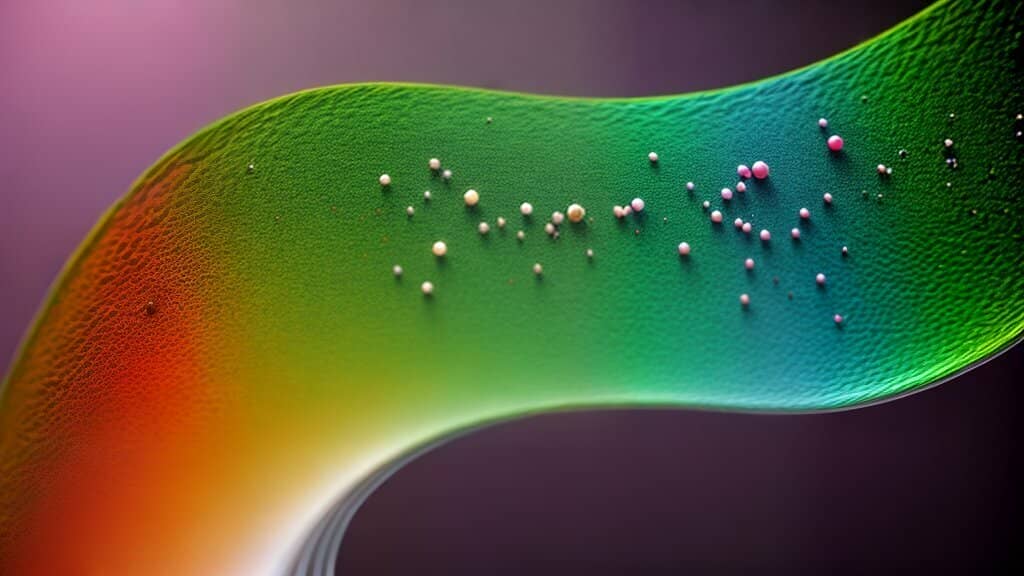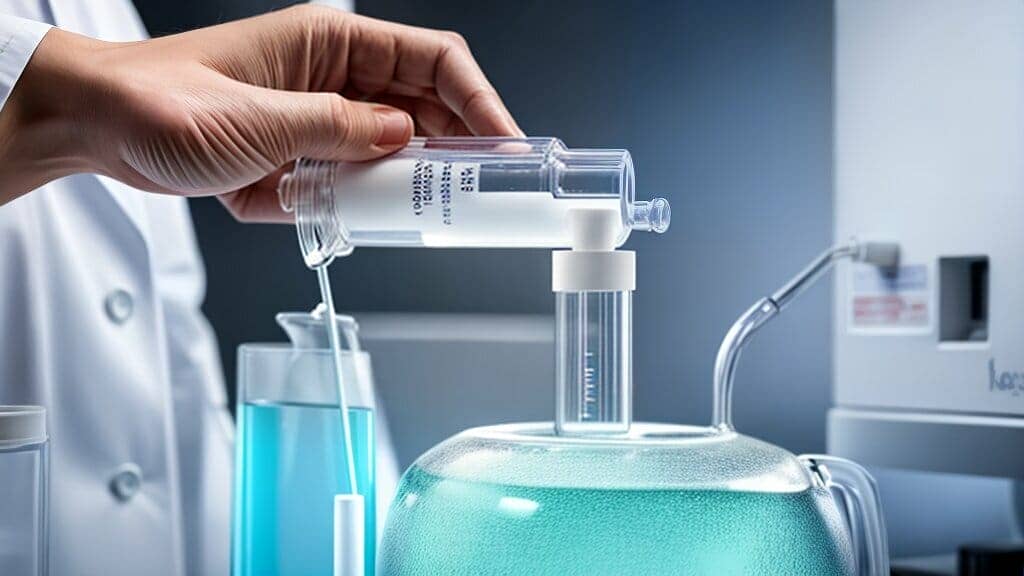Lyme Disease is a serious tick-borne illness that can cause a range of complications throughout the body. Of particular concern for many patients is the potential for kidney problems resulting from the disease. In this article, we will explore the connections between Lyme Disease and kidney health, discussing the risks, symptoms, and necessary care for individuals dealing with renal complications as a result of Lyme Disease.
Key Takeaways
- Lyme Disease can lead to kidney problems in some patients
- A range of kidney complications may occur in individuals with Lyme Disease, including chronic kidney disease and renal damage
- Lifestyle changes, alternative therapies, and holistic treatment plans may aid in the management of kidney problems related to Lyme Disease
- Early detection and proactive care are essential for effective management of renal dysfunction resulting from Lyme Disease
Understanding Lyme Disease and its Impact on Kidneys
Lyme Disease is a tick-borne illness caused by the bacteria Borrelia burgdorferi. While the disease primarily affects the skin, joints, and nervous system, it can also impact other organs, including the kidneys.
Studies have shown that Lyme Disease can cause kidney dysfunction and inflammation, leading to a range of renal complications. This can occur in both early and late stages of the disease, and may be accompanied by other symptoms such as fever, fatigue, and joint pain.
The exact mechanisms through which Lyme Disease affects kidney health are not yet fully understood. However, research suggests that the bacteria may directly damage the kidney tissue, trigger an autoimmune response that attacks the kidneys, or create a pro-inflammatory environment that leads to renal dysfunction.
Lyme Nephritis
One of the most severe kidney complications associated with Lyme Disease is Lyme nephritis, a condition characterized by inflammation and damage to the kidneys. Lyme nephritis typically develops in the later stages of the disease and can lead to chronic kidney disease if left untreated. In some cases, it can also be life-threatening.
Lyme nephritis is believed to be caused by an immune complex-mediated reaction, in which antibodies produced in response to the bacteria combine with proteins in the kidneys, triggering inflammation and damage.

In addition to Lyme nephritis, Lyme Disease can also cause other kidney problems such as glomerulonephritis, interstitial nephritis, and tubulointerstitial nephritis. These conditions are characterized by inflammation and damage to different parts of the kidney, leading to a variety of symptoms such as proteinuria, hematuria, and decreased kidney function.
It is important for individuals with Lyme Disease to be aware of the potential impact on their kidney health and to seek appropriate medical care if symptoms arise. Early detection and treatment can help prevent further damage and improve outcomes.
Kidney Complications in Lyme Disease
Lyme Disease can lead to various kidney complications that can be alarming for patients. The development of kidney problems in Lyme patients is a complex process that can have several underlying risk factors. These factors can include blood pressure regulation, immune response, and inflammation, among others.
When Lyme Disease affects the kidneys, several types of kidney diseases may arise. These can include glomerulonephritis, rapidly progressive glomerulonephritis, and interstitial nephritis. These conditions can cause a range of symptoms, including proteinuria, hematuria, and edema, among others.
| Types of Kidney Diseases in Lyme Patients | Symptoms |
|---|---|
| Glomerulonephritis | Proteinuria, hematuria, decreased urine output, edema |
| Rapidly progressive glomerulonephritis | Proteinuria, hematuria, decreased urine output, edema, high blood pressure, fatigue, anemia |
| Interstitial nephritis | Fever, rash, fatigue, weight loss, nausea, vomiting, acute kidney injury |
The development of kidney disease in Lyme patients is a significant concern, as it can lead to chronic kidney disease, end-stage renal disease, and even the need for dialysis or kidney transplantation.

Early detection and intervention are critical for the effective management of kidney complications in Lyme Disease. If you experience any symptoms or have concerns about your kidney health, it is important to seek medical attention promptly.
Symptoms of Kidney Problems in Lyme Disease
Lyme Disease can cause a range of kidney problems that can lead to renal dysfunction and serious complications if left unaddressed. Patients with Lyme Disease may experience general kidney health concerns as well as specific symptoms of chronic kidney disease. This section will cover the signs and symptoms that may indicate kidney problems in individuals with Lyme Disease.
General kidney-related symptoms in Lyme Disease patients may include:
- Abdominal pain
- Swelling in the ankles, feet, or legs
- Fatigue
- Decreased urine output
- Increased need to urinate, especially at night
- Nausea and vomiting
In addition to these general symptoms, Lyme Disease patients with kidney problems may also experience specific symptoms of chronic kidney disease, such as:
- High blood pressure
- Protein in the urine
- Blood in the urine
- Decreased appetite
- Difficulty concentrating
It’s important to note that not all individuals with Lyme Disease and kidney problems will experience these symptoms, and some may have no symptoms at all. Therefore, regular monitoring and check-ups are essential for Lyme Disease patients with kidney concerns.

“As soon as I was diagnosed with Lyme Disease, I knew I had to pay special attention to my kidney health. I started experiencing swelling and fatigue, and my doctor confirmed I had developed kidney problems as a result of the infection. Thanks to regular monitoring and treatment, my kidney function has significantly improved.” – Lyme Disease patient
Diagnosis of Kidney Problems in Lyme Disease
Early detection and accurate diagnosis of kidney problems in individuals with Lyme Disease are crucial for managing the condition effectively. Lyme Disease patients may experience various renal complications, including kidney damage and renal dysfunction.
Medical evaluations and tests play an important role in identifying and diagnosing kidney problems in Lyme patients. The following are some of the most common diagnostic methods:
| Diagnostic Method | Description |
|---|---|
| Blood Tests | Blood tests are typically the first step in diagnosing kidney problems. These tests can reveal abnormal levels of creatinine, urea, or other waste products that build up in the blood when the kidneys are not functioning properly. |
| Urinalysis | Urinalysis involves examining a urine sample for the presence of protein, blood, or other substances that may indicate kidney damage or dysfunction. |
| Renal Imaging | Renal imaging, such as ultrasound, CT scan, or MRI, can provide detailed images of the kidneys and surrounding structures. These tests can help identify structural abnormalities or blockages in the urinary tract that may be contributing to kidney problems. |
| Kidney Biopsy | In some cases, a kidney biopsy may be necessary to confirm a diagnosis or determine the extent of kidney damage. This involves removing a small sample of kidney tissue for examination under a microscope. |
It’s important to note that kidney problems in Lyme Disease patients can sometimes be difficult to diagnose, as they may share symptoms with other conditions. Therefore, seeking specialized medical care and obtaining an accurate diagnosis is crucial for effective treatment.

Treatment Approaches for Kidney Problems in Lyme Disease
When it comes to managing kidney problems in individuals with Lyme Disease, an integrative approach that combines conventional medical interventions with alternative therapies is often most effective. This section will explore some of the existing treatment options for kidney complications in Lyme Disease patients.
Conventional Medical Interventions
Conventional medical interventions for kidney problems in Lyme Disease patients may include medications, such as antibiotics or immunosuppressants, to address the underlying infection and reduce inflammation. In severe cases, dialysis or a kidney transplant may be necessary.
It is important to note that any medication regimen should be closely monitored, as certain medications may have adverse effects on kidney function.
Alternative and Holistic Approaches
Alternative and holistic approaches to kidney care for Lyme Disease patients may include:
- Acupuncture: This traditional Chinese therapy involves inserting thin needles into specific points on the body to stimulate healing.
- Herbal supplements: Certain herbs may be recommended to support kidney health and combat inflammation.
- Dietary modifications: Adopting a kidney-friendly diet, low in sodium and high in nutrients, can help alleviate symptoms and promote overall health.
- Stress-reduction techniques: Mind-body practices like meditation or yoga can help ease stress and promote relaxation, which may in turn benefit kidney health.
At Oasis Medical Institute, a holistic approach is taken with Lyme Disease and kidney care. Medical director Dr. Francisco Contreras MD oversees a team of integrative health professionals who work together to address not only the physical symptoms of the disease, but also the emotional and spiritual aspects of healing.

It is crucial for individuals with kidney problems related to Lyme Disease to work closely with a healthcare team to develop a comprehensive treatment plan that addresses their unique needs. By combining conventional medical interventions with alternative and holistic therapies, patients may be able to better manage their symptoms and improve their overall health and well-being.
Oasis Medical Institute: A Holistic Approach to Lyme Disease and Kidney Care
For individuals with Lyme Disease and kidney problems, seeking specialized care is crucial for achieving optimal health outcomes. At Oasis Medical Institute in Tijuana, MX, patients can benefit from an integrative approach to Lyme Disease and kidney care, led by medical director Dr. Francisco Contreras MD.
At Oasis Medical Institute, patients can expect a holistic treatment plan that addresses not only the symptoms of Lyme Disease and kidney problems but also the underlying factors contributing to their development. The institute offers a range of conventional medical interventions, including medications and procedures, as well as complementary therapies such as acupuncture, massage, and nutritional counseling.
| Services offered at Oasis Medical Institute: | |
|---|---|
| Comprehensive medical evaluations |  |
| Lab testing and diagnostic services |  |
| Conventional medical interventions |  |
| Complementary therapies and supportive treatments |  |
| Personalized nutrition and lifestyle counseling |  |
What sets Oasis Medical Institute apart is its commitment to a patient-centered approach, taking into account the unique needs and preferences of each individual. Through this integrative approach, patients can achieve improved kidney health and Lyme Disease management, as well as a higher quality of life overall.
To learn more about the holistic treatments available at Oasis Medical Institute or to book a consultation, call 866-868-1992 today.
The Role of Lifestyle and Diet in Kidney Health for Lyme Patients
Along with medical interventions, lifestyle modifications and proper nutrition are crucial for maintaining optimal kidney health in individuals with Lyme Disease. Patients with kidney complications should take extra precautions to protect their renal function.
Exercise: Regular exercise enhances blood flow and cardiovascular health, reducing the risk of kidney disease. However, it is important to avoid strenuous activities that could cause muscle breakdown and release of myoglobin. Patients should consult with their medical provider regarding safe exercise practices.
Hydration: Adequate hydration is essential for kidney function. Patients are advised to drink 6-8 cups of water daily and avoid caffeine and alcohol, which can dehydrate the body.
Salt: Excess salt can lead to high blood pressure, which may damage the kidneys. Patients should limit their salt intake and choose low-sodium options.
| Recommended Foods | Foods to Avoid |
|---|---|
| High-quality protein sources, such as lean meats, fish, and eggs | Processed foods high in sodium and preservatives |
| Fruits and vegetables, which provide vitamins and antioxidants | Sugary drinks and foods, which can lead to obesity and diabetes |
| Healthy fats, such as those found in nuts and avocados | Trans fats and saturated fats |
Herbs and Supplements: Certain herbs and supplements can enhance kidney function and reduce inflammation, including stinging nettle, parsley, and omega-3 fatty acids. However, patients should always consult with their medical provider before taking any new supplements or herbs.
By making these lifestyle modifications and dietary changes, individuals with Lyme Disease and kidney problems can take an active role in preserving their renal function and improving their overall health.

Kidney Problems in Lyme Disease: Follow-up Care and Monitoring
For individuals with kidney problems resulting from Lyme Disease, ongoing follow-up care and monitoring are essential for effective management. It is important to regularly evaluate kidney function and identify any changes or abnormalities in renal health.
Medical evaluations may include blood and urine tests, imaging tests such as ultrasounds or CT scans, and biopsies in some cases. It is crucial for Lyme patients to work closely with their healthcare team to develop a personalized plan that addresses their specific kidney health needs.
| Medical Evaluations | Purpose |
|---|---|
| Blood tests | To assess kidney function and detect abnormalities |
| Urine tests | To detect protein or blood in urine, which may indicate kidney damage |
| Imaging tests | To visualize the kidneys and surrounding tissues, and detect any abnormalities |
| Biopsies | To obtain a tissue sample for further evaluation of kidney function and identify potential underlying causes of kidney disease |
Compliance with prescribed treatments and medications is crucial for maintaining kidney health, and regular check-ups with a healthcare provider can help to assess treatment effectiveness and identify any necessary adjustments. Early detection and intervention can significantly improve outcomes for individuals with kidney problems resulting from Lyme Disease.
Proper hydration is also crucial for maintaining optimal kidney function. Lyme Disease patients with kidney problems should aim to drink plenty of water and avoid consuming excessive amounts of caffeinated or alcoholic beverages, which can contribute to dehydration and further harm renal function.

Image Source: seowriting.ai
Supportive Therapies for Kidney Problems in Lyme Disease
While conventional medical interventions are essential for managing kidney problems in Lyme Disease patients, complementary therapies can provide significant supportive benefits. These therapies can help alleviate symptoms, promote general health and well-being, and enhance the effectiveness of medical treatments.
Massage therapy: Massage therapy can help reduce stress and tension in the body, promoting relaxation and improving circulation. It can also aid in the elimination of toxins, which is particularly beneficial for individuals with kidney problems.
Acupuncture: Acupuncture is a traditional Chinese medicine practice that involves the insertion of thin needles into specific points of the body. It can help alleviate pain, reduce inflammation, and stimulate the body’s natural healing processes.
Herbal medicine: Herbal medicine can provide natural relief for various symptoms associated with kidney problems. Certain herbs, such as dandelion root and nettle leaf, can help promote kidney function and reduce inflammation.
Mind-body therapies: Mind-body therapies, such as yoga, meditation, and tai chi, can help reduce stress and anxiety, which can be particularly beneficial for individuals with kidney problems. These practices can also strengthen the body’s immune system and promote overall health and well-being.
Nutritional therapy: Proper nutrition is essential for promoting kidney health. A nutritionist or healthcare provider can assist Lyme Disease patients in developing a diet plan tailored to their specific needs and concerns. This plan may include limiting certain foods and beverages or increasing intake of others.
By incorporating these supportive therapies into a holistic treatment plan, Lyme Disease patients with kidney problems can improve their overall health and well-being and maintain optimal kidney function.

Kidney Complications in Lyme Disease
In addition to affecting the joints and neurological system, Lyme Disease can also lead to various kidney complications. Depending on the severity and duration of the disease, Lyme patients may experience a range of renal issues, including nephritis, glomerulonephritis, and proteinuria. These conditions can lead to decreased kidney function, impaired filtration, and potential kidney damage.
According to recent research, around 5% of Lyme Disease patients develop kidney problems as a result of the disease. While kidney complications are more common in later-stage Lyme Disease, they can occur at any point during the infection. Therefore, it is crucial for patients to be aware of the potential symptoms and seek appropriate medical care if they suspect kidney problems.
Kidney complications in Lyme Disease may be caused by a variety of factors, including the body’s inflammatory response to the infection, the direct infiltration of the bacteria into the kidneys, and the side effects of certain medications used to treat the disease. Therefore, it is essential for individuals with Lyme Disease to receive comprehensive medical evaluations of their kidney function and seek appropriate treatment if necessary.

Image source: seowriting.ai
Kidney Care for Lyme Disease Patients at Oasis Medical Institute
To receive specialized care for Lyme Disease and kidney problems, it is recommended that individuals book a consultation at Oasis Medical Institute. The institute offers a holistic approach to treatment, combining conventional medical interventions with complementary therapies and lifestyle modifications. Led by medical director Dr. Francisco Contreras MD, the team of experienced professionals at Oasis Medical Institute provides personalized care and support to help patients overcome kidney challenges and improve their overall quality of life.

Contact Oasis Medical Institute to schedule a consultation and learn more about the treatment options available for kidney problems resulting from Lyme Disease. Call 866-868-1992 to speak with a representative today.
Latest Research and Advancements in Lyme Disease and Kidney Care
Recent research has shed light on the connection between Lyme Disease and kidney problems, leading to advancements in diagnosis and treatment. A study conducted by the National Institute of Diabetes and Digestive and Kidney Diseases found that Lyme Disease can cause acute kidney injury, a sudden loss of kidney function, in severe cases. The study also demonstrated the effectiveness of early diagnosis and treatment in preventing kidney damage in Lyme patients.
Another study published in the Journal of Nephrology documented the successful treatment of Lyme-related glomerulonephritis, a type of kidney disease that results in inflammation and damage to the kidney’s filtering units. The study showcased the benefits of a combination approach, utilizing antibiotics and immunosuppressive therapy, in reversing the progression of the disease and restoring kidney function.
Advancements in the field of holistic medicine have also brought new treatment options for individuals with Lyme Disease and kidney problems. A study published in Complementary Therapies in Medicine found that acupuncture can decrease proteinuria, a common symptom of kidney disease, in Lyme patients. Another study published in BMC Complementary and Alternative Medicine demonstrated the efficacy of herbal medicine in reducing inflammation and improving kidney function in individuals with Lyme-related kidney problems.

The latest research and advancements in Lyme Disease and kidney care underscore the importance of seeking specialized medical attention and exploring a holistic treatment approach. With early detection and proper care, individuals with Lyme Disease and kidney problems can overcome the challenges and improve their overall health and wellbeing.
Conclusion
Managing kidney problems in individuals with Lyme Disease requires a proactive and holistic approach. This article has provided a comprehensive understanding of the connection between Lyme Disease and kidney health, including the risks, symptoms, and necessary care. By exploring the existing treatment options, diagnostic methods, and lifestyle modifications, patients can take a proactive role in managing their kidney health.
For individuals seeking specialized care, Oasis Medical Institute in Tijuana, MX offers a holistic approach to Lyme Disease and kidney care, led by medical director Dr. Francisco Contreras MD. The institute provides a range of integrative therapies and supportive treatments that can aid in the management of kidney problems alongside conventional medical interventions.
It is crucial for patients to seek ongoing follow-up care and monitoring for kidney problems resulting from Lyme Disease. With proper medical evaluations and regular check-ups, patients can effectively manage renal dysfunction and prevent further damage to their kidney health.
By taking a proactive approach to kidney health and exploring the available treatment options, individuals with Lyme Disease can overcome kidney challenges and achieve optimal health and well-being.
FAQ
Q: What is Lyme Disease and how does it affect the kidneys?
A: Lyme Disease is an infectious disease caused by the bacterium Borrelia burgdorferi and transmitted through tick bites. It can have various effects on the body, including the kidneys. Lyme Disease can potentially lead to kidney complications such as renal dysfunction and kidney damage.
Q: What are the symptoms of kidney problems in individuals with Lyme Disease?
A: Symptoms of kidney problems in individuals with Lyme Disease may include decreased urine output, swelling in the legs and ankles, high blood pressure, fatigue, and changes in urinary habits. It is important to consult a healthcare professional for proper evaluation and diagnosis.
Q: How are kidney problems in Lyme Disease diagnosed?
A: Kidney problems in Lyme Disease are diagnosed through various tests and evaluations, including blood tests to assess kidney function, urine tests to detect abnormalities, imaging tests such as ultrasounds or CT scans, and kidney biopsies in some cases. Early detection and diagnosis are crucial for effective management.
Q: What treatment options are available for kidney problems in Lyme Disease patients?
A: Treatment approaches for kidney problems in Lyme Disease patients may include conventional medical interventions such as medication, dietary modifications, and lifestyle changes. Additionally, holistic and complementary therapies may be incorporated to support kidney health. It is important to consult with a healthcare professional to develop an individualized treatment plan.
Q: Are there holistic treatment options available for Lyme Disease and kidney care?
A: Yes, Oasis Medical Institute in Tijuana, MX offers holistic treatment options for Lyme Disease and kidney care. Led by medical director Dr. Francisco Contreras MD, the institute provides an integrative approach combining conventional medicine with complementary therapies to support patients’ overall health and well-being.
Q: How can lifestyle and diet impact kidney health in Lyme Disease patients?
A: Lifestyle choices and dietary habits play a significant role in maintaining optimal kidney health for Lyme Disease patients. Following a balanced diet, staying hydrated, avoiding excessive salt and protein intake, and engaging in regular physical activity can help support kidney function. It is advisable to consult with a healthcare professional or a registered dietitian for personalized advice.
Q: Why is follow-up care and monitoring important for kidney problems in Lyme Disease patients?
A: Follow-up care and monitoring are essential for individuals with kidney problems resulting from Lyme Disease to ensure effective management and early intervention if necessary. Regular medical evaluations, check-ups, and ongoing communication with healthcare professionals are vital to monitor kidney function and adjust treatment plans as needed.
Q: Can supportive therapies aid in the management of kidney problems in Lyme Disease patients?
A: Yes, complementary therapies and supportive treatments can be beneficial in managing kidney problems in Lyme Disease patients. These therapies may include acupuncture, herbal remedies, massage therapy, and stress management techniques. It is important to consult with a healthcare professional to determine the most appropriate and effective treatments.
Q: Are there patient testimonials about overcoming kidney challenges in Lyme Disease?
A: Yes, this section features testimonials from Lyme Disease patients who have successfully overcome kidney challenges. They share their experiences and the strategies that have helped improve their kidney health, providing hope and inspiration for others facing similar issues.
Q: How can I book a consultation at Oasis Medical Institute for Lyme Disease treatment?
A: To book a consultation at Oasis Medical Institute in Tijuana, MX for Lyme Disease and kidney care, please call 866-868-1992. It is advised to seek specialized care at the institute for comprehensive treatment options tailored to your individual needs.
Q: What are the latest research and advancements in Lyme Disease and kidney care?
A: This section provides an overview of the latest research and advancements in the field of Lyme Disease and kidney care. It highlights any groundbreaking studies or innovative treatment approaches that may be relevant to patients with kidney problems, showcasing the progress in understanding and managing these conditions.
Dr. Francisco Contreras, MD is a renowned integrative medical physician with over 20 years of dedicated experience in the field of integrative medicine. As the Medical Director of the Oasis of Hope Hospital in Tijuana, Mexico, he has pioneered innovative treatments and integrative approaches that have been recognized globally for the treatment of cancer, Lyme Disease, Mold Toxicity, and chronic disease using alternative treatment modalities. Dr. Contreras holds a medical degree from the Autonomous University of Mexico in Toluca, and speciality in surgical oncology from the University of Vienna in Austria.
Under his visionary leadership, the Oasis of Hope Hospital has emerged as a leading institution, renowned for its innovative treatments and patient-centric approach for treating cancer, Lyme Disease, Mold Toxicity, Long-Haul COVID, and chronic disease. The hospital, under Dr. Contreras's guidance, has successfully treated thousands of patients, many of whom traveled from different parts of the world, seeking the unique and compassionate care the institution offers.
Dr. Contreras has contributed to numerous research papers, articles, and medical journals, solidifying his expertise in the realm of integrative medicine. His commitment to patient care and evidence-based treatments has earned him a reputation for trustworthiness and excellence. Dr. Contreras is frequently invited to speak at international conferences and has been featured on CNN, WMAR2 News, KGUN9 News, Tyent USA, and various others for his groundbreaking work. His dedication to the medical community and his patients is unwavering, making him a leading authority in the field.
Contreras has authored and co-authored several books concerning integrative therapy, cancer, Lyme Disease and heart disease prevention and chronic illness, including "The Art Science of Undermining Cancer", "The Art & Science of Undermining Cancer: Strategies to Slow, Control, Reverse", "Look Younger, Live Longer: 10 Steps to Reverse Aging and Live a Vibrant Life", "The Coming Cancer Cure Your Guide to effective alternative, conventional and integrative therapies", "Hope Medicine & Healing", "Health in the 21st Century: Will Doctors Survive?", "Healthy Heart: An alternative guide to a healthy heart", “The Hope of Living Cancer Free”, “Hope Of Living Long And Well: 10 Steps to look younger, feel better, live longer” “Fighting Cancer 20 Different Ways”, "50 Critical Cancer Answers: Your Personal Battle Plan for Beating Cancer", "To Beat . . . Or Not to Beat?", and “Dismantling Cancer.”





















